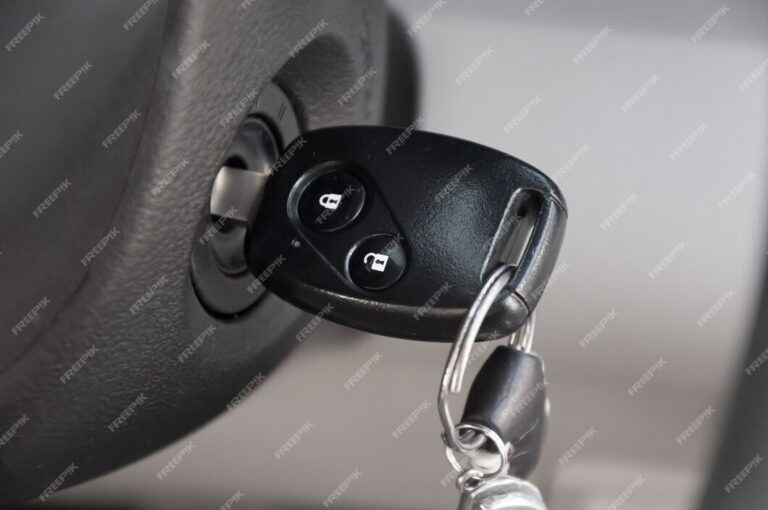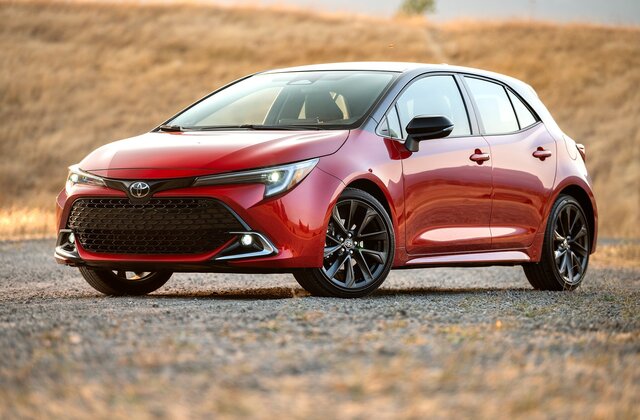Luxury Cars: Weighing the Pros and Cons
Luxury cars have always been a symbol of status and class, and they continue to fascinate people around the world. They offer an unparalleled driving experience, with top-of-the-line features and technologies that make them worth the investment. However, owning a luxury car is not without its drawbacks. The initial cost of purchasing a luxury car can be high, and the ongoing costs of maintenance and repairs can be substantial. Additionally, there are environmental concerns and social implications associated with owning a luxury car. In this post, we will take a closer look at the pros and cons of owning a luxury car to help you make an informed decision before making a purchase. We’ll discuss everything from the design and performance to the price and environmental impact, so you can weigh the pros and cons and make the best choice for your lifestyle and budget.
1. Introduction to luxury cars and their appeal
Luxury cars have long been a symbol of prestige, success, and indulgence. These high-end vehicles are designed to offer not only exceptional performance and cutting-edge technology but also a level of comfort and opulence that sets them apart from their mainstream counterparts. The allure of luxury cars goes beyond their sleek exteriors and powerful engines; it encompasses the whole experience of owning and driving a vehicle that exudes elegance and sophistication.
One of the main appeals of luxury cars is the attention to detail and craftsmanship that goes into their design. From the supple leather upholstery to the meticulously crafted wood or metal accents, every element is carefully chosen to create a refined and luxurious interior. The comfort features, such as heated and ventilated seats, advanced sound systems, and advanced climate control, further enhance the driving experience, making it a truly indulgent affair.
In terms of performance, luxury cars often boast powerful engines that deliver exhilarating acceleration and smooth handling. They are engineered to provide a seamless and enjoyable driving experience, whether you’re cruising on the open highway or navigating through city streets. The advanced safety features, such as adaptive cruise control, lane-keeping assist, and collision mitigation systems, also ensure that you feel secure and protected behind the wheel.
However, it’s important to consider the cons of owning a luxury car as well. The initial purchase price of luxury cars is significantly higher than that of mainstream vehicles, and the cost of maintenance and repairs can also be higher due to the use of premium materials and advanced technology. Additionally, luxury cars tend to have higher insurance premiums and depreciate at a faster rate compared to their mainstream counterparts.
Ultimately, the decision to own a luxury car boils down to personal preference, lifestyle, and budget. While the appeal of luxury cars is undeniable, it’s essential to carefully weigh the pros and cons to determine if owning one aligns with your priorities and financial goals. In the following sections, we will delve deeper into the various aspects of luxury cars, exploring the performance, features, cost of ownership, and more, to help you make an informed decision.
2. The pros of owning a luxury car: top-notch performance and technology
Owning a luxury car comes with a myriad of benefits that can enhance your driving experience to a whole new level. One of the major pros is the top-notch performance that these vehicles offer. Luxury car manufacturers invest heavily in research and development to ensure that their vehicles deliver exceptional performance on the road.
From powerful engines that deliver exhilarating acceleration to advanced suspension systems that provide a smooth and comfortable ride, luxury cars are engineered to deliver a driving experience like no other. The precise handling and responsive steering make maneuvering through tight corners effortless and enjoyable.
In addition to performance, luxury cars also boast cutting-edge technology that sets them apart from their counterparts. These vehicles often come equipped with the latest features and innovations, designed to make your driving experience safer, more convenient, and more enjoyable.
State-of-the-art infotainment systems, advanced driver assistance systems, and connectivity options are just a few examples of the technology you can expect from a luxury car. Whether it’s a premium sound system that envelops you in crystal-clear audio or an intuitive touchscreen display that seamlessly integrates with your smartphone, luxury cars strive to offer the best technological advancements available.
Moreover, luxury car manufacturers often prioritize comfort and luxury in their designs. Sumptuous leather seats, meticulous attention to detail in the interior craftsmanship, and a quiet cabin that shields you from outside noise are just some of the elements that make luxury cars truly luxurious.
While the higher price tag of luxury cars may be a consideration, the top-notch performance and technology that come with them are undeniable advantages for those seeking an unparalleled driving experience.
3. The cons of owning a luxury car: high purchase and maintenance costs
While there are many advantages to owning a luxury car, it’s essential to consider the cons as well. One significant drawback is the high purchase and maintenance costs associated with luxury vehicles.
Luxury cars often come with hefty price tags, making them inaccessible to many budget-conscious buyers. In addition to the initial investment, the ongoing maintenance and repair expenses can be significantly higher compared to regular vehicles. Specialized parts, premium materials, and advanced technologies utilized in luxury cars contribute to the increased costs.
Another factor to consider is the depreciation rate of luxury cars. These vehicles tend to lose their value at a faster rate compared to mainstream cars. As a result, the investment you make in a luxury car may not retain its value over time.
Furthermore, insurance premiums for luxury cars are generally higher due to their higher price and repair costs. This can result in increased monthly expenses that need to be factored into the overall cost of ownership.
Moreover, luxury cars often require specialized servicing and repairs, which can be time-consuming and inconvenient. Finding qualified mechanics who specialize in luxury vehicles can be challenging, and the availability of parts may also be limited, leading to longer wait times.
Despite these cons, many individuals still find the allure of luxury cars and their prestige hard to resist. However, it’s crucial to weigh these downsides against your budget and lifestyle before committing to the purchase of a luxury car.
4. The prestige factor: the allure of owning a luxury car
Owning a luxury car goes beyond mere transportation; it is an embodiment of prestige and indulgence. The allure of these high-end vehicles is undeniable and often a key motivation for potential buyers. The prestige factor associated with luxury cars can have a profound impact on one’s social status, self-image, and overall perception.
One of the primary advantages of owning a luxury car is the instant recognition and admiration it commands. These vehicles are often associated with luxury brands that have established a reputation for excellence and craftsmanship. Whether it’s the sleek lines, the opulent interiors, or the cutting-edge technology, luxury cars are designed to impress and captivate onlookers.
The prestige factor extends beyond aesthetics as well. The ownership of a luxury car can symbolize success, affluence, and sophistication. It becomes a statement piece that reflects the owner’s discerning taste and their ability to enjoy the finer things in life. Driving a luxury car can elevate one’s social standing and open doors to exclusive circles and events.
Moreover, luxury cars offer an unparalleled driving experience. The advanced engineering, powerful engines, and refined handling create a sense of exhilaration and pleasure that is unmatched by mainstream vehicles. From the moment you step inside, the premium materials, plush seats, and cutting-edge technology envelop you in a world of comfort and opulence.
However, it is important to consider the potential drawbacks of owning a luxury car. The initial cost of purchase can be significantly higher compared to regular vehicles, and the expenses don’t stop there. Maintenance, repairs, and insurance for luxury cars can also be considerably more expensive. Additionally, the exclusivity of luxury cars may lead to limited availability of parts and specialized servicing, which can further add to the cost and inconvenience.
Furthermore, the attention and envy that luxury cars attract can also be a double-edged sword. While it can be fulfilling to bask in the admiration and prestige, it may also attract unwanted attention or even jealousy. The risk of theft or vandalism may be higher for luxury cars, necessitating extra security measures.
In weighing the pros and cons of owning a luxury car, it is essential to consider individual preferences, financial capabilities, and lifestyle factors. The allure of prestige and indulgence must be balanced with practicality and long-term sustainability. Ultimately, owning a luxury car is a personal choice that requires careful consideration, as it can be a source of immense pride and joy, but also comes with its own set of responsibilities and considerations.
5. Fuel efficiency and environmental impact of luxury cars
When it comes to luxury cars, fuel efficiency and environmental impact are important factors to consider. Luxury cars are often associated with high-performance engines and advanced features, but these can come at a cost when it comes to fuel consumption and emissions.
On one hand, luxury cars are designed to deliver power and speed, which may require larger engines and more fuel consumption. This can result in lower fuel efficiency compared to smaller and more economical vehicles. It’s important to consider how often and how far you will be driving your luxury car, as frequent long-distance trips can significantly impact your fuel expenses.
However, it’s worth noting that many luxury car manufacturers are increasingly focusing on incorporating hybrid or electric technologies into their vehicles. This not only helps improve fuel efficiency but also reduces the overall environmental impact by minimizing emissions. Some luxury car models even offer plug-in hybrid or fully electric options, allowing you to enjoy the luxury experience while being more environmentally conscious.
Additionally, advancements in engineering and technology have led to the development of more fuel-efficient engines in luxury cars. Features like start-stop systems, aerodynamic designs, and lightweight materials are being used to enhance fuel efficiency without compromising performance.
It’s important to weigh the pros and cons of fuel efficiency and environmental impact when considering a luxury car. While some luxury cars may have higher fuel consumption, there are options available that prioritize efficiency and sustainability. Ultimately, it comes down to your personal preferences, driving habits, and environmental values.
6. The comfort and luxury features that come with owning a luxury car
When it comes to luxury cars, one of the most enticing aspects is the comfort and luxury features that come along with them. These vehicles are designed with the utmost attention to detail, ensuring a premium driving experience for their owners.
One of the key features that sets luxury cars apart is the high-quality materials used in their interiors. From plush leather seats to fine wood or metal accents, every element is carefully chosen to create an environment of luxury and sophistication. The seats are often ergonomically designed, providing excellent support and comfort for long drives. With advanced climate control systems, you can customize the temperature inside the car to your liking, no matter the weather outside.
In addition to the physical comfort, luxury cars also offer a host of advanced technology features. Many models come equipped with state-of-the-art infotainment systems, allowing you to seamlessly connect your smartphone and access navigation, music, and other apps. Some luxury cars even offer features like heads-up displays, which project important information directly onto the windshield, ensuring you never have to take your eyes off the road.
Another aspect that adds to the allure of luxury cars is the advanced safety features they offer. From adaptive cruise control to blind spot monitoring, these vehicles are equipped with cutting-edge technology to keep you and your passengers safe on the road. Additionally, luxury cars often undergo rigorous testing and come with top-notch build quality, providing peace of mind and a sense of security.
Of course, it’s important to note that all these luxurious features come at a price. Luxury cars tend to have a higher initial cost compared to their non-luxury counterparts, and the maintenance and repair expenses can also be higher. However, for those who value comfort, style, and the latest technology, the benefits of owning a luxury car can far outweigh the costs.
Ultimately, the decision to own a luxury car should be based on your personal preferences and priorities. If you prioritize comfort, advanced features, and a prestigious driving experience, then a luxury car may be the perfect choice for you.
7. Resale value and depreciation of luxury cars
When it comes to purchasing a luxury car, one important factor to consider is its resale value and depreciation. Luxury cars are known for their high initial price tags, but they can also hold their value well over time, making them a wise investment for some buyers.
One of the advantages of owning a luxury car is that they often have a slower depreciation rate compared to their mainstream counterparts. This means that even after a few years of ownership, luxury cars tend to retain a significant portion of their original value. This can be especially beneficial if you plan on selling or trading in your luxury car in the future.
Additionally, luxury car brands tend to have a strong reputation for quality and craftsmanship, which can further contribute to their resale value. Buyers are often willing to pay a premium for a used luxury car from a well-known and respected brand, which can result in a higher resale price.
However, it’s important to note that not all luxury cars hold their value equally. Factors such as brand reputation, model popularity, and market demand can influence the resale value of a luxury car. It’s essential to research and consider these factors before making a purchase to ensure you choose a luxury car that will hold its value well.
Furthermore, luxury cars typically have higher maintenance and repair costs compared to mainstream vehicles. This can impact the overall cost of ownership, as well as the potential resale value. It’s important to factor in these additional expenses when considering the long-term value of owning a luxury car.
In conclusion, while luxury cars generally have a slower depreciation rate and can hold their value well, it’s crucial to carefully consider the specific brand, model, and market conditions. By doing thorough research and understanding the pros and cons of resale value and depreciation, you can make an informed decision when investing in a luxury car.
8. The potential downsides of owning a luxury car, such as expensive insurance and repair costs
While owning a luxury car can bring a sense of prestige and luxury, it is important to consider the potential downsides that come along with it. One of the main concerns is the cost of insurance. Luxury cars typically come with higher insurance premiums due to their higher value and the potential for more expensive repairs. Insurance companies often view luxury cars as higher risk, which results in higher premiums for owners. It is essential to factor in these additional costs when budgeting for a luxury car.
Another consideration is the cost of repairs and maintenance. Luxury cars often require specialized parts and skilled technicians, which can drive up the cost of repairs. Even routine maintenance can be more expensive compared to regular vehicles. It is crucial to research the average cost of maintenance and repairs for the specific luxury car model you are interested in, and include these expenses in your budget.
Another potential downside is the depreciation of luxury cars. While luxury cars may hold their value better than regular vehicles in some cases, they still experience depreciation. The initial investment in a luxury car may not provide the same return on investment as other types of investments. It is important to be aware of this aspect and consider the long-term financial implications before making a purchase.
Despite these potential downsides, many enthusiasts still find the allure of owning a luxury car irresistible. The unique driving experience, cutting-edge technology, and superior craftsmanship can outweigh the additional costs for some individuals. It ultimately comes down to personal preferences, financial capabilities, and the willingness to bear the extra expenses associated with luxury car ownership.
9. Considerations for choosing between a luxury car and a non-luxury option
When it comes to choosing between a luxury car and a non-luxury option, there are several considerations to keep in mind. While luxury cars often come with a hefty price tag, they also offer a range of benefits that may make them worth the investment.
One of the main advantages of owning a luxury car is the superior quality and craftsmanship that comes with it. Luxury car manufacturers are known for their attention to detail, using high-quality materials and advanced technology to create a luxurious driving experience. From plush leather seats to state-of-the-art infotainment systems, every aspect of a luxury car is designed to provide comfort and sophistication.
Performance is another factor to consider. Luxury cars often boast powerful engines and advanced driving dynamics, delivering a thrilling and smooth ride. Whether it’s the acceleration, handling, or overall performance, these vehicles are engineered to provide an exhilarating driving experience that surpasses what you might find in a non-luxury car.
Moreover, luxury cars tend to offer a wide range of advanced safety features. From lane-keeping assist to adaptive cruise control, these vehicles prioritize the safety of both the driver and passengers. Additionally, luxury car manufacturers often invest in cutting-edge technology, such as advanced driver assistance systems and collision avoidance systems, further enhancing the overall safety of the vehicle.
On the flip side, the cost associated with luxury cars can be a significant drawback. Not only are the initial purchase prices higher, but the maintenance and repair costs can also be more expensive compared to non-luxury options. Additionally, luxury cars typically require premium fuel, which can add to the overall cost of ownership.
Another consideration is the availability of features and customization options. Luxury cars often offer a wide array of customizable features, allowing buyers to tailor the vehicle to their preferences. From interior finishes to advanced entertainment systems, the level of personalization available in luxury cars is often unmatched.
Ultimately, the decision between a luxury car and a non-luxury option depends on individual preferences, budget, and priorities. If you prioritize luxury, performance, and advanced features, a luxury car may be the right choice for you. However, if budget and cost of ownership are key considerations, a non-luxury option may be more practical. It’s important to weigh the pros and cons carefully before making a decision that aligns with your needs and lifestyle.
10. Conclusion: weighing the pros and cons of luxury cars to make an informed decision
In conclusion, when considering whether to invest in a luxury car, it is essential to carefully weigh the pros and cons to make an informed decision.
On the positive side, luxury cars offer a range of enticing advantages. The first and most obvious benefit is the prestige and status that comes with owning a luxury vehicle. These cars are often associated with success, wealth, and a refined taste, allowing owners to make a statement wherever they go. Additionally, luxury cars are known for their exceptional craftsmanship, luxurious interiors, and cutting-edge technology. The comfort and convenience they provide can greatly enhance the overall driving experience.
However, it is important to also consider the potential drawbacks. Luxury cars come with a higher price tag, both upfront and in terms of maintenance and repairs. The cost of ownership, including fuel, insurance, and depreciation, can be significantly higher compared to non-luxury vehicles. Furthermore, luxury cars often require specialized servicing and parts, which may not be as readily available or affordable as those for mainstream vehicles.
When making a decision, it is crucial to consider your personal needs, lifestyle, and budget. If you highly value prestige, performance, and the latest features, a luxury car may be the perfect fit for you. However, if you are more budget-conscious and prioritize practicality and affordability, a non-luxury vehicle may be a more suitable choice.
Ultimately, the decision to invest in a luxury car should be based on a thorough evaluation of the pros and cons, taking into account your individual preferences and circumstances. By carefully considering these factors, you can ensure that you make an informed decision that aligns with your needs and desires.
In conclusion, when it comes to luxury cars, there are certainly pros and cons to consider. While luxury cars offer a sense of prestige, advanced technology, and superior comfort, they also come with a hefty price tag, higher maintenance costs, and potential depreciation. Ultimately, the decision to invest in a luxury car should be based on your personal preferences, financial situation, and lifestyle. We hope this blog post has provided you with a comprehensive overview of the pros and cons, allowing you to make an informed decision. Remember, it’s not just about the car you drive, but the enjoyment and satisfaction it brings to your life.











+ There are no comments
Add yours